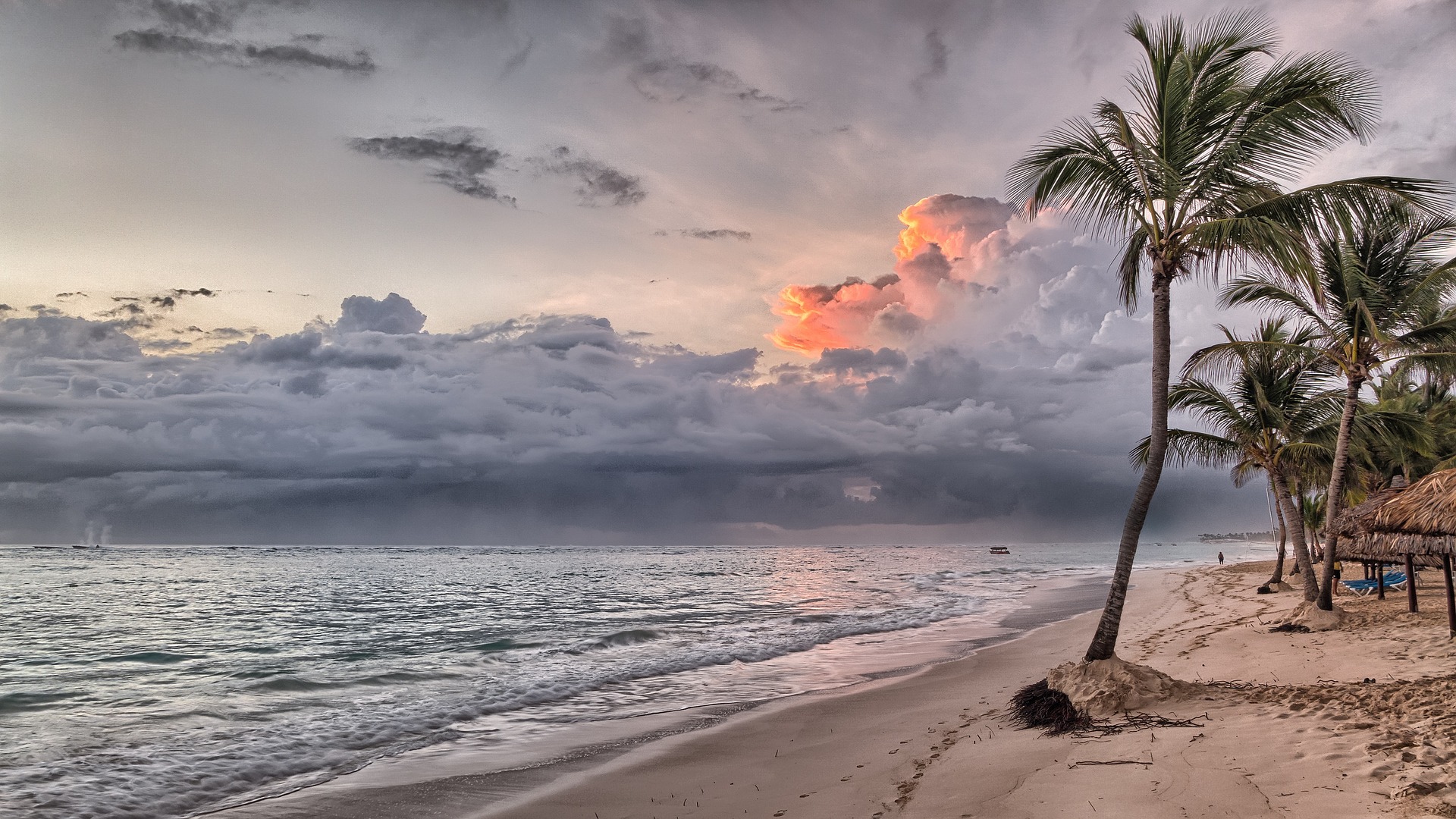The Tax Benefits of Expatriating to Mauritius Island
Mauritius is an attractive destination for those looking to expatriate, due to the low tax rates and simple tax system. Expatriates may benefit from the attractive tax benefits offered by the Mauritian government.
The Mauritian government has established a flat tax rate of 15 percent for Mauritian citizens and non-residents. This flat tax rate applies to all income earned both in and outside Mauritius, with the exception of income from certain investments such as government securities, bank deposits, and other financial instruments.
Mauritius also has a generous tax exemption system. There are several tax exemptions available, including a personal allowance of up to MUR 30,000, a housing allowance of up to MUR 20,000 and a medical allowance of up to MUR 5,000. In addition, expatriates can take advantage of the island’s double taxation treaties with many countries, which allow taxpayers to pay taxes only in the country where the income is earned.
In addition to low taxes, expatriates may benefit from the Mauritian government’s tax incentives, which can help reduce their tax burden. These incentives include a tax credit for research and development activities, tax deductions for capital investments, and special relief for expatriates and entrepreneurs.
Overall, expatriating to Mauritius can be an attractive option for those looking to benefit from a more favorable tax regime. The low tax rates, simple tax system, and generous incentives can help reduce an expatriate’s overall tax burden. With the right planning and advice, expatriates can take full advantage of the attractive tax benefits offered by Mauritius.
Property Investment in Mauritius: Advantages and Benefits
Mauritius is increasingly becoming a popular destination for property investment. With its growing economy and attractive tax incentives, it has become an attractive option for investors looking to diversify their portfolios. In this article, we will explore the advantages and benefits of investing in property in Mauritius.
One of the key advantages of investing in property in Mauritius is its attractive tax incentives. Mauritius offers tax-free capital gains, with no capital gains tax to be paid on profits made from the sale of a property. In addition, any rental income earned from property investments is exempt from income tax. These incentives make it a very attractive option for investors looking to maximize their returns on investment.
Another advantage of investing in property in Mauritius is the potential for capital growth. With a growing economy and strong real estate market, the potential for capital growth is considerable. In addition, there are many opportunities for investors to take advantage of the government’s investment incentives and benefit from attractive returns.
The country also offers a safe and secure environment for investors. The government has implemented measures to protect investors, such as the registration of titles to all property. This ensures that all investors’ rights are safeguarded and that their investment is secure.
Finally, investing in property in Mauritius provides investors with access to a range of attractive lifestyle options. With its stunning beaches, vibrant culture, and vibrant nightlife, Mauritius is an ideal place to invest in property and enjoy the benefits of a luxurious lifestyle.
In conclusion, investing in property in Mauritius offers a range of advantages and benefits for investors. With its attractive tax incentives, potential for capital growth, secure environment, and range of lifestyle options, it is an excellent option for those looking to diversify their portfolios and maximize their returns on investment.
Cost of Living in Mauritius Island
Mauritius is a small island nation located off the southeast coast of Africa in the Indian Ocean. It is known for its stunning beaches, vibrant culture, and stunning architecture. Despite its small size, Mauritius boasts a high standard of living, making it an attractive destination for expats and tourists alike.
The cost of living in Mauritius is relatively affordable, especially when compared to other countries in the region. The average cost of living in Mauritius for a single person is between $1,000 and $1,500 per month, depending on lifestyle and location. This includes rent, utilities, food, transportation, and entertainment.
The cost of accommodation varies according to location and type of accommodation. A small studio in a city like Port Louis can cost around $400 per month, while a large two-bedroom flat in a more rural area can cost between $700 and $800 per month. In the most popular areas, notably the North (Grand Baie, Péreybère, Bain Boeuf, Mont Choisy, Trou aux Biches, Roches Noires…) or the West (Tamarin, Rivière Noires, Flic en Flac…) the rental price for a 3 to 4 bedroom villa can be between 1000 and 5000 USD per month depending on the location.
Utilities such as electricity, water, and internet are relatively inexpensive in Mauritius, costing an average of around $100 per month. Food prices also vary depending on where you shop, but the average cost of a basic grocery shop is around $50 per week.
Transportation in Mauritius is generally very affordable. Public buses charge a flat fare of around $0.50 per ride, while a taxi ride across the island will cost around $5.
Overall, the cost of living in Mauritius is relatively affordable, making it an attractive destination for expats and tourists alike. With its stunning beaches, vibrant culture, and stunning architecture, it’s easy to see why this beautiful island has become such a popular destination.
Exploring the Life Style of Mauritius: From Golf to Boats
Mauritius is an exotic island in the Indian Ocean that offers a wide range of activities to fit every lifestyle. From luxurious golf courses, to sailing, snorkeling, and fishing, the island provides a variety of activities sure to appeal to any traveler.
Golfing
Golfers from all over the world flock to Mauritius for its world-class golf courses. Whether you’re a novice or a pro, the large selection of courses provide an excellent opportunity to practice your game or simply to enjoy the breathtaking views of the island. From 5-star resorts to championship courses, Mauritius offers something for every level of golfer.
Sailing
Mauritius is a paradise for sailing enthusiasts. With its crystal clear waters and gentle winds, the island offers the perfect conditions for sailing. Whether you’re looking to explore the island’s coastline or to take a leisurely day trip, there’s a boat for you. From traditional wooden sailboats to modern catamarans, there’s something to suit all levels of experience.
Snorkeling and Fishing
Mauritius also offers some of the best snorkeling and fishing spots in the world. With its diverse marine life, the island provides a great opportunity to explore the ocean. From colorful coral reefs to exotic fish, the underwater world of Mauritius is truly captivating. There are also plenty of opportunities for fishing, with the island’s vast array of species ranging from tuna to marlin.
Whether you’re looking for a relaxing holiday or an adventure, Mauritius has something for everyone. With its luxurious golf courses, sailing trips, and snorkeling and fishing spots, the island has something to offer all types of travelers. So come explore the life style of Mauritius and experience all that the island has to offer!
Mauritius Island: Health Infrastructures and Social Security
Mauritius is an island nation located in the Indian Ocean, east of Madagascar and southeast of the Seychelles. It is known for its stunning beaches, vibrant culture, and wonderful hospitality. Despite its small size, the country has made tremendous progress in health infrastructure and social security.
Mauritius has achieved significant progress in health infrastructure since its independence in 1968. Over the years, the government has invested in public health and has established an effective healthcare system. It has implemented universal health coverage and access to essential medicines. Primary healthcare is provided free of charge in the public sector and is subsidized for the private sector. The government has also created a comprehensive health insurance system and established a number of specialized medical facilities to serve the population.
In terms of social security, Mauritius has a comprehensive social protection system. It provides a range of benefits, including old age pensions, unemployment benefits, disability benefits, maternity benefits, and family allowances. The government also provides social assistance to the elderly and those with special needs, as well as subsidies and tax credits to encourage economic activities. Additionally, the government has implemented a number of social protection initiatives, such as the Social Security Fund, which provides income support to vulnerable groups.
Overall, Mauritius has made great strides in improving its health infrastructure and social security. The country has achieved universal health coverage and access to essential medicines, and has implemented a comprehensive social protection system. These initiatives have enabled the country to create a safe and secure environment for its citizens.
Mauritius Island: Health Insurance Options for Expats
Mauritius is an ideal destination for expats looking to enjoy the beautiful beaches and lush landscape of the Indian Ocean. While the country is known for its excellent healthcare system, expats may want to consider the different health insurance options available in Mauritius.
Expats should first consider the national health insurance system, known as the Health Insurance Fund (HIF). This system covers all citizens of Mauritius, as well as any expats who are employed by a registered employer in the country. The HIF covers a range of medical treatments, including inpatient and outpatient care, as well as specialist care, preventive care, and emergency services.
For expats who are self-employed or not employed by a registered employer in Mauritius, they may need to purchase private health insurance. There are several private health insurance companies in Mauritius, and they offer a variety of plans that cover different types of treatments and services. Many of these plans also offer international coverage, so expats can be sure they will be covered if they need to travel abroad for medical reasons.
Expats should also consider purchasing additional health insurance coverage. For example, expats may want to look into travel insurance, which can provide them with coverage for medical expenses if they become ill or injured while travelling abroad. They may also want to look into supplemental plans that provide additional coverage for certain treatments and services.
No matter what type of health insurance expats choose, it is important to make sure they are fully aware of the coverage they are receiving and that they understand the terms and conditions of their plan. By researching their options and considering their needs, expats can ensure they have the right health insurance coverage to protect themselves and their families while in Mauritius.
Education in Mauritius: Crèches, Primary Schools and Universities
Mauritius is a small island nation in the Indian Ocean that has a high literacy rate and impressive educational system. The country has invested heavily in its education sector, with the government providing free and compulsory education for all children from the age of three up to the age of 15.
Crèches: In Mauritius, crèches provide childcare and pre-schooling for children before they start primary school. These facilities are offered to working parents and are regulated by the Ministry of Education and Human Resources. The curriculum is designed to lay the foundations of learning, introducing children to basic concepts in language, numeracy, science, and social studies.
Primary Schools: The vast majority of children in Mauritius attend primary school, which lasts for six years. During these six years, students are taught a number of subjects, including language, mathematics, science, social studies, art, music, and physical education. The curriculum is designed to prepare students for the high-stakes Secondary Education Assessment (SEA) exam, which is taken at the end of primary school.
Secondary Schools: After completing the SEA, students can choose to pursue either a General Certificate of Education (GCE) or a Technical and Vocational Education and Training (TVET) program. The GCE program is designed to prepare students for further education, such as university. The TVET program is focused on equipping students with the skills and knowledge necessary for immediate employment.
Universities: Mauritius has several universities offering a range of undergraduate and postgraduate degrees. The University of Mauritius is the oldest and largest university in the country, while the University of Technology Mauritius is the newest. Other universities include the Open University of Mauritius, the University of Mauritius-University of Technology, and the University of Technology of the Indian Ocean.
Overall, Mauritius has an impressive education system that provides quality education for its citizens. The government has invested heavily in the sector to ensure that all children have access to the best possible educational opportunities.
Retirement Benefits in Mauritius Island: Advantages of Expatriation
Mauritius Island is an ideal destination for expatriates due to the numerous benefits it offers for retirement. Located in the Indian Ocean, it is known for its stunning beaches, lush green vegetation, and vibrant culture. The country has a strong financial system and a low cost of living, making it attractive for those seeking to retire abroad.
Mauritius offers a variety of retirement benefits to expatriates, such as tax-free income, generous pensions, and a wide range of investment options. Expatriates can enjoy a maximum tax rate of 15% on their incomes, regardless of the source. The country also offers generous pensions that are paid out either as lump sums or as monthly payments. Furthermore, expatriates can benefit from various investment opportunities, such as stocks, bonds, mutual funds, and real estate.
In addition, expatriates can enjoy a healthy lifestyle in Mauritius. Its health care system is considered to be one of the best in the world, with advanced medical facilities and well-trained professionals. The country also has a wide range of recreational activities, such as swimming, fishing, golfing, and sailing, allowing expatriates to enjoy their retirement years.
Moreover, Mauritius is home to a diverse and welcoming population, making it easy for expatriates to integrate into its vibrant culture. The country’s political system is stable and its economy is growing, making Mauritius an attractive destination for those seeking to retire abroad.
In conclusion, Mauritius offers a variety of retirement benefits to expatriates, such as tax-free income, generous pensions, and a wide range of investment options. Furthermore, the country’s health care system is considered to be one of the best in the world, and its population is diverse and welcoming. As such, Mauritius is an ideal destination for those seeking to retire abroad.
Mauritius Island: Working and Living as an Expat
Mauritius Island, located in the Indian Ocean, is an exotic destination that attracts many people looking for a unique experience. For those who are interested in working and living as an expat in Mauritius, this guide provides helpful information about the local economy, job opportunities, and the regulations for expats.
The economy of Mauritius is diverse and largely based on its tourism industry. The country has seen a steady growth in its economy over the past decade and is now one of the most prosperous countries in the world. This has opened up many job opportunities for expats in a variety of sectors, including finance, technology, and hospitality.
For those interested in working in Mauritius, the best way to find job opportunities is through the internet. There are several job portals that list job openings in the country, and many of these are targeted towards expats. Additionally, there are companies and organizations in Mauritius that are actively recruiting expats. It is also wise to check with the local Chamber of Commerce or other business associations to learn more about job opportunities.
In order to work and live in Mauritius as an expat, it is necessary to obtain a work permit. The process for obtaining a work permit can be lengthy, but typically includes submitting a written application and providing paperwork such as a valid passport, proof of employment, and a medical certificate. Once approved, the permit is valid for two years and can be extended as needed.
Taxation in Mauritius is relatively straightforward and expats are expected to pay taxes on their income. Expats are also required to obtain a social security number, which is necessary for filing taxes.
Overall, living and working as an expat in Mauritius can be a rewarding and unique experience. With its diverse economy and friendly people, Mauritius is an ideal destination for those looking for a change of pace. With the right preparation and knowledge, expats can enjoy a fulfilling and successful stay in this beautiful island nation.
Mauritius Island: Cultural Benefits of Expatriation
Mauritius is a beautiful island located in the Indian Ocean, off the southeastern coast of Africa. It is known for its lush tropical landscapes, stunning beaches, and vibrant culture. For many people, the opportunity to experience the culture of Mauritius is a major draw, and expatriation is one of the best ways to do so. Expatriation offers a variety of cultural benefits, from learning about different customs and cultures to gaining valuable international experience.
One of the primary benefits of expatriating to Mauritius is the ability to learn about other cultures. The island is home to many different ethnic groups, such as the Indo-Mauritians, Creoles, Chinese, and Europeans. This diversity provides the opportunity to immerse oneself in a variety of cultures and gain a unique perspective on life.
Another benefit is the chance to gain international experience. Expatriates in Mauritius have the chance to work in a global setting, interacting with people from different countries and cultures. This experience can be invaluable for those looking to further their career or gain a better understanding of the world.
Finally, expatriates in Mauritius will also enjoy the unique cuisine the island has to offer. From traditional Mauritian dishes such as dholl puri and boulet-rice to international flavors like Chinese, Indian, and French, there is something to please every palate. In addition, Mauritius is also home to many different types of seafood, which can be enjoyed fresh from the sea.
Overall, expatriating to Mauritius offers a variety of cultural benefits. From learning about different cultures to gaining valuable international experience, expatriates can truly immerse themselves in the Mauritian way of life and gain a unique understanding of the world.
For more information please contact us: Click here



